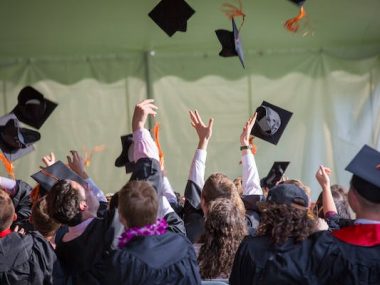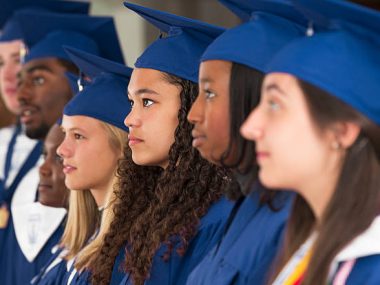Can you get a scholarship for being left handed? Scholarships are a valuable resource for students seeking financial aid to pursue their educational dreams.
While most scholarships are awarded based on academic merit, extracurricular activities, or specific talents, there are unique opportunities available for individuals with distinctive characteristics or qualities.
One such characteristic that has gained attention in recent years is left-handedness.
This raises the intriguing question: Can you get a scholarship for being left-handed?
Being left-handed is a trait that sets individuals apart from the majority of the population.
With approximately 10% of the world’s population being left-handed, it has become a subject of curiosity and interest.
Consequently, scholarships targeting left-handed students have emerged, aiming to provide support and recognition for this specific group.
In this article, we shall explore scholarships for left-handed people.
By the end of this article, you will have a comprehensive understanding of left-handed scholarships, enabling you to make informed decisions and pursue the opportunities available to you.
So, let us embark on this journey and discover the possibilities that await left-handed students in the realm of scholarships and higher education.
Also Read:
How Do Scholarships Work? (Full Guide)
Fulbright Scholarship (Everything You Need to Know)
Can You Get a Scholarship for Being Left Handed?
Yes, it is indeed possible to obtain a scholarship specifically for being left-handed.
While most scholarships are awarded based on academic achievement, talent, or financial need, there are unique scholarship opportunities available for individuals with distinctive characteristics or qualities.
Being left-handed is one such characteristic that has gained attention from scholarship providers.
These scholarships aim to recognize and support left-handed students who often face challenges in a predominantly right-handed world.
Left-handed scholarships can vary in terms of eligibility criteria, application requirements, and award amounts.
Some scholarships may require proof of left-handedness, such as a written essay or a recommendation from a teacher or family member.
Others may focus on specific fields of study or career paths. It is important to research and identify reputable scholarship programs tailored to left-handed individuals and review their specific requirements.
While left-handed scholarships may not be as prevalent as other scholarship opportunities, they offer a unique avenue for left-handed students to receive financial support and recognition for their distinctive attributes.
These scholarships not only alleviate the financial burden of education but also provide a platform for celebrating diversity and promoting inclusivity in higher education.
Types of Scholarships Available for Left-Handed Students
There are various types of scholarships available specifically for left-handed students, providing them with opportunities to pursue their educational goals.
These scholarships recognize the unique challenges that left-handed individuals may face in a predominantly right-handed world and aim to support their academic endeavors.
Here are some common types of scholarships available:
1. General Left-Handed Scholarships
These scholarships are open to any left-handed student, regardless of their field of study or career goals.
They focus on celebrating left-handedness and promoting inclusivity.
2. Major-Specific Scholarships
Some scholarships are specifically tailored to left-handed students pursuing certain fields of study, such as arts, sciences, or business.
These scholarships encourage left-handed individuals to excel in their chosen disciplines.
3. Professional Association Scholarships
Certain professional associations or organizations offer scholarships exclusively for left-handed students who plan to enter specific industries or professions. These scholarships aim to support left-handed individuals in fields where their handedness may have an impact.
4. Regional or Local Scholarships
Some scholarships are limited to students in a specific geographic area or state.
These scholarships may be sponsored by local businesses, community organizations, or foundations and prioritize supporting left-handed students within their community.
5. College-Specific Scholarships
Some colleges and universities have their own scholarship programs specifically for left-handed students.
These scholarships may be based on academic achievement, leadership qualities, or financial need.
It is important for left-handed students to research and explore these different scholarship opportunities, understanding their eligibility requirements, application processes, and deadlines.
By leveraging these scholarships, left-handed students can receive financial support and recognition for their unique attributes while pursuing their educational aspirations.
Criteria and Eligibility for Left-Handed Scholarships
Criteria and eligibility for left-handed scholarships can vary depending on the specific scholarship program.
While the primary requirement is being left-handed, additional criteria may include academic achievement, extracurricular involvement, community service, and financial need.
Some scholarships may require applicants to submit proof of left-handedness, such as a written essay or a recommendation from a teacher or family member.
It is important for left-handed students to research and review the eligibility requirements of each scholarship they are interested in, ensuring they meet the criteria and can provide the necessary documentation or materials to support their application.
Tips and Strategies for Winning a Left-Handed Scholarship
To increase your chances of winning a left-handed scholarship, consider the following tips and strategies:
- Research extensively: Explore available left-handed scholarships and understand their requirements, deadlines, and application processes.
- Highlight your left-handedness: Emphasize how being left-handed has influenced your experiences, challenges, and unique perspective in your scholarship application.
- Showcase achievements: Highlight your academic accomplishments, extracurricular activities, leadership roles, and community involvement to demonstrate your well-roundedness.
- Personalize your application: Tailor your essays and application materials to reflect your individuality, goals, and aspirations, emphasizing how the scholarship will support your academic journey.
- Seek recommendation letters: Request letters of recommendation from teachers, mentors, or community members who can attest to your character, abilities, and dedication.
- Meet deadlines: Submit your application well in advance of the deadline, ensuring all required documents and materials are complete and accurate.
- Proofread and edit: Thoroughly review your application materials to eliminate errors, typos, and inconsistencies.
- Practice for interviews: If interviews are part of the selection process, prepare by practicing common interview questions and presenting yourself confidently.
By following these tips, you can enhance your chances of securing a left-handed scholarship and receiving the financial support you need to pursue your educational goals.
Also Read:
National Merit Scholarship (All You Should Know)
How Many Jobs Are Available in Clothing/Shoe/Accessory Stores?
Conclusion
The answer to the question “Can you get a scholarship for being left-handed?” is a resounding yes.
Scholarships specifically targeting left-handed individuals exist and provide unique opportunities for financial support and recognition.
While not as prevalent as other scholarship categories, left-handed scholarships celebrate diversity and aim to alleviate the challenges faced by left-handed students.
By researching and exploring various scholarship programs, understanding their criteria, and strategically presenting their unique attributes, left-handed individuals can increase their chances of securing these scholarships.
Ultimately, these scholarships empower left-handed students to pursue their educational aspirations, promote inclusivity, and highlight the importance of diverse perspectives in higher education.






